1. Check whether there are spelling errors in HTML elements and whether the closing tag is forgotten
Even veterans often make mistakes in the nesting relationship of divs. You can use Dreamweaver's verification function to check for errors.
2. Check whether the CSS is correct
Check whether there are any spelling errors, whether you forgot the ending }, etc. You can use CleanCSS to check CSS for spelling errors. CleanCSS is a tool to reduce weight for CSS, but it can also check for spelling errors.
3. Determine the location where the error occurred
If the error affects the overall layout, you can delete the div blocks one by one until the display returns to normal after deleting a certain div block, then you can determine the location where the error occurred.
4. Use the border attribute to determine the layout characteristics of the error element
Using the float attribute for layout may cause errors if you are not careful. At this time, add the border attribute to the element to determine the element boundary, and the cause of the error will be revealed.
5. The parent element of a float element cannot specify the clear attribute
If the clear attribute is used on the parent element of a float element under MacIE, the layout of the surrounding float elements will be confused. This is a famous bug of MacIE. If you don't know it, you will take detours.
6. Float elements must specify the width attribute
Many browsers have bugs when displaying float elements without specified width. So regardless of the content of the float element, the width attribute must be specified for it.
In addition, try to use em instead of px as the unit when specifying elements.
7. Float elements cannot specify attributes such as margin and padding.
IE has a bug when displaying float elements with margin and padding specified. Therefore, do not specify margin and padding attributes on float elements (you can nest a div inside the float element to set margin and padding). You can also use hacks to specify special values for IE.
8. The sum of the widths of float elements must be less than 100%
If the sum of the widths of float elements is exactly 100%, some ancient browsers will not display properly. Therefore, please ensure that the sum of the widths is less than 99%.
9. Have you reset the default style?
Some attributes such as margin, padding, etc., will be interpreted differently by different browsers. Therefore, it is best to set all margin and padding to 0, list style to none, etc. before development.
10. Did you forget to write the DTD?
If the display results are still different no matter how you adjust different browsers, then you can check whether you forgot to write the following line of DTD at the beginning of the page:
-//W3C//DTD HTML 4.01 Transitional//EN” “http://www.w3.org/TR/html4/loose.dtd”>
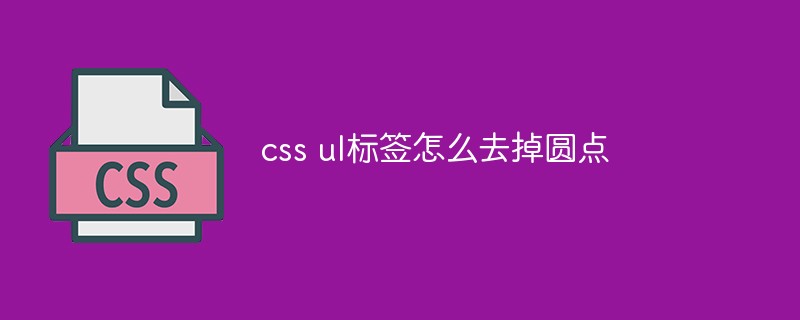 css ul标签怎么去掉圆点Apr 25, 2022 pm 05:55 PM
css ul标签怎么去掉圆点Apr 25, 2022 pm 05:55 PM在css中,可用list-style-type属性来去掉ul的圆点标记,语法为“ul{list-style-type:none}”;list-style-type属性可设置列表项标记的类型,当值为“none”可不定义标记,也可去除已有标记。
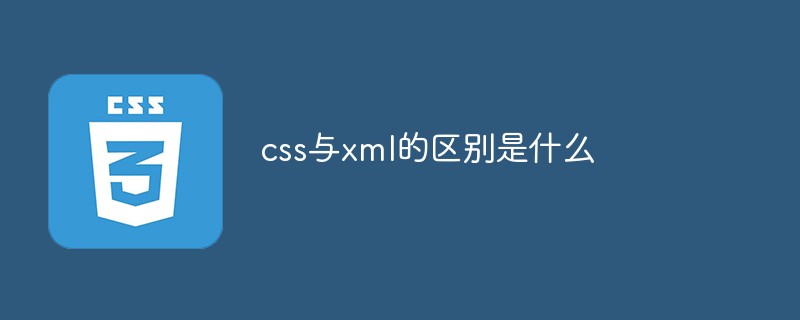 css与xml的区别是什么Apr 24, 2022 am 11:21 AM
css与xml的区别是什么Apr 24, 2022 am 11:21 AM区别是:css是层叠样式表单,是将样式信息与网页内容分离的一种标记语言,主要用来设计网页的样式,还可以对网页各元素进行格式化;xml是可扩展标记语言,是一种数据存储语言,用于使用简单的标记描述数据,将文档分成许多部件并对这些部件加以标识。
 css3怎么实现鼠标隐藏效果Apr 27, 2022 pm 05:20 PM
css3怎么实现鼠标隐藏效果Apr 27, 2022 pm 05:20 PM在css中,可以利用cursor属性实现鼠标隐藏效果,该属性用于定义鼠标指针放在一个元素边界范围内时所用的光标形状,当属性值设置为none时,就可以实现鼠标隐藏效果,语法为“元素{cursor:none}”。
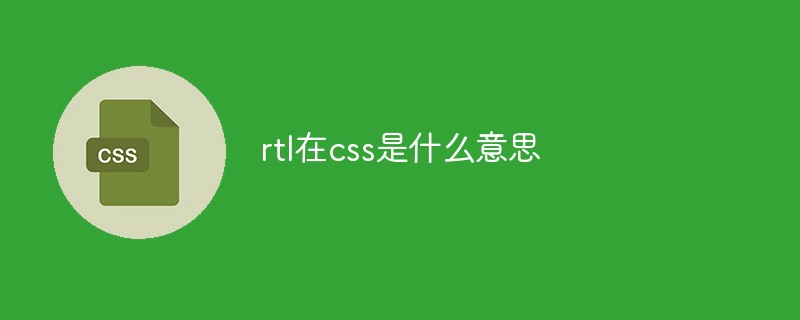 rtl在css是什么意思Apr 24, 2022 am 11:07 AM
rtl在css是什么意思Apr 24, 2022 am 11:07 AM在css中,rtl是“right-to-left”的缩写,是从右往左的意思,指的是内联内容从右往左依次排布,是direction属性的一个属性值;该属性规定了文本的方向和书写方向,语法为“元素{direction:rtl}”。
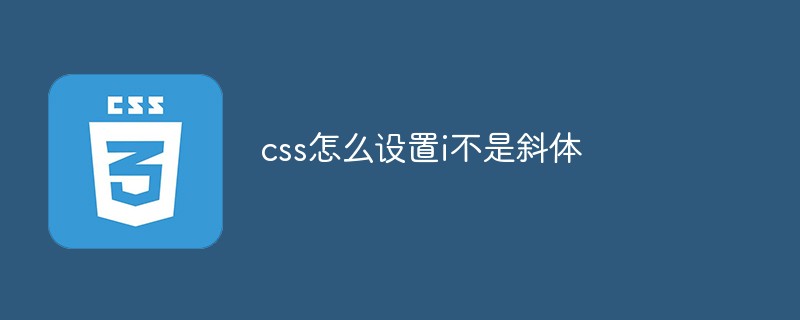 css怎么设置i不是斜体Apr 20, 2022 am 10:36 AM
css怎么设置i不是斜体Apr 20, 2022 am 10:36 AM在css中,可以利用“font-style”属性设置i元素不是斜体样式,该属性用于指定文本的字体样式,当属性值设置为“normal”时,会显示元素的标准字体样式,语法为“i元素{font-style:normal}”。
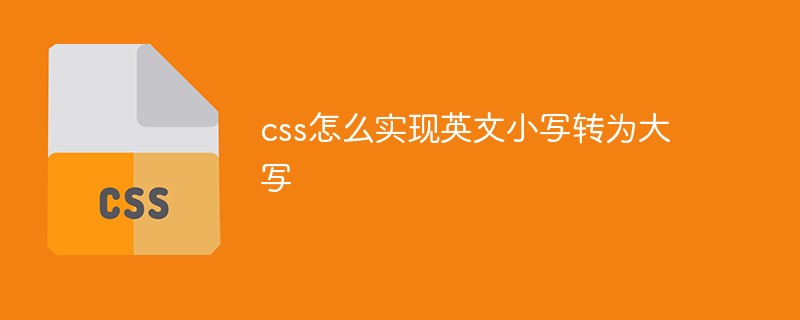 css怎么实现英文小写转为大写Apr 25, 2022 pm 06:35 PM
css怎么实现英文小写转为大写Apr 25, 2022 pm 06:35 PM转换方法:1、给英文元素添加“text-transform: uppercase;”样式,可将所有的英文字母都变成大写;2、给英文元素添加“text-transform:capitalize;”样式,可将英文文本中每个单词的首字母变为大写。
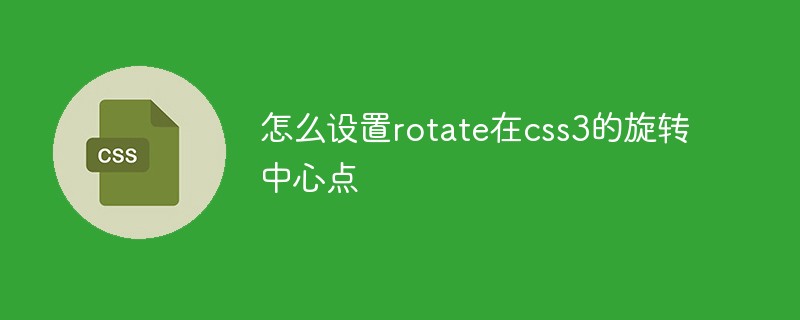 怎么设置rotate在css3的旋转中心点Apr 24, 2022 am 10:50 AM
怎么设置rotate在css3的旋转中心点Apr 24, 2022 am 10:50 AM在css3中,可以用“transform-origin”属性设置rotate的旋转中心点,该属性可更改转换元素的位置,第一个参数设置x轴的旋转位置,第二个参数设置y轴旋转位置,语法为“transform-origin:x轴位置 y轴位置”。


Hot AI Tools

Undresser.AI Undress
AI-powered app for creating realistic nude photos

AI Clothes Remover
Online AI tool for removing clothes from photos.

Undress AI Tool
Undress images for free

Clothoff.io
AI clothes remover

AI Hentai Generator
Generate AI Hentai for free.

Hot Article

Hot Tools

Notepad++7.3.1
Easy-to-use and free code editor

Atom editor mac version download
The most popular open source editor

Dreamweaver Mac version
Visual web development tools

Dreamweaver CS6
Visual web development tools

DVWA
Damn Vulnerable Web App (DVWA) is a PHP/MySQL web application that is very vulnerable. Its main goals are to be an aid for security professionals to test their skills and tools in a legal environment, to help web developers better understand the process of securing web applications, and to help teachers/students teach/learn in a classroom environment Web application security. The goal of DVWA is to practice some of the most common web vulnerabilities through a simple and straightforward interface, with varying degrees of difficulty. Please note that this software







